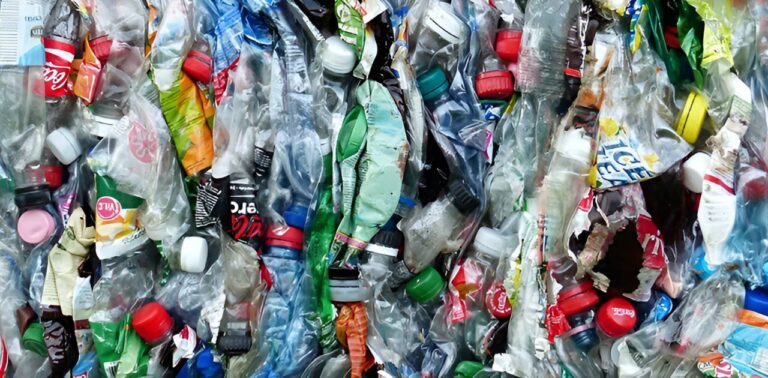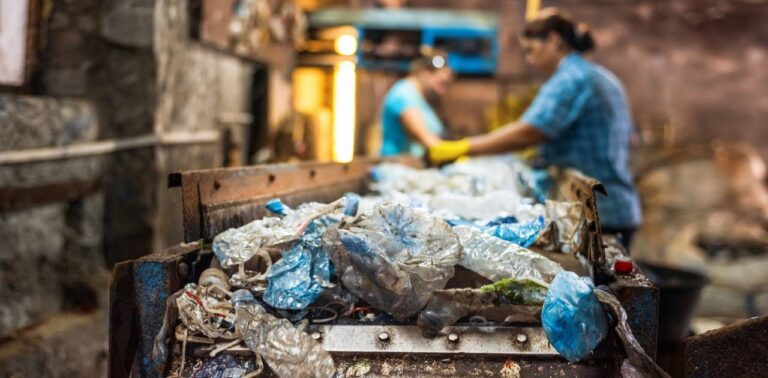Brazilian waste is a complex mix of waste, with a high percentage of plastic. These plastics, present in landfills and, despite the laws, still in dumps, take up considerable space and challenge waste management in the country. Recycling plastics is an essential solution to deal with this problem, but the process is much more complex than it seems.

Why Recycle Plastics?
Recycling plastics is essential for several reasons:
- Energy Saving: Recycling plastics requires a fraction of the energy needed to produce plastics from virgin raw materials.
- Waste Reduction: Recycled plastic reduces the amount of waste in landfills and dumps.
- Lower Environmental Impact: Less plastic in the environment means less pollution and preservation of natural resources.
However, the wide variety of plastic types makes the recycling process more challenging. Let’s explore the different facets of plastic recycling and understand why it’s so complicated, yet vital.
Types of Plastics and Their Recycling Challenges
Plastics can be broadly classified into two groups:
Simple Plastics to Recycle
Some types of plastics are easier to recycle and include:
- Pots and Containers: Used for food and household products.
- Grocery Bags: Often recycled into new bags or films.
- PET bottles: Common and recyclable textile fibers and new containers.
Plastics with Complex or Unviable Recycling
Other plastics present greater challenges, such as:
- Pot Handles and Knobs: Composed of different materials, making recycling difficult.
- Foam and Styrofoam: Difficult to process due to their light and bulky structure.
- Vacuum Packaging and Disposable Diapers: Contains multiple materials that complicate separation and recycling.
How Does Plastic Recycling Work?
Plastic recycling can be done in several ways, each with its own methods and challenges:
Chemical Recycling
Chemical recycling transforms plastics into basic petrochemicals, which can be used as raw materials for new plastics or chemicals. This process allows for the recycling of plastic mixtures and accepts some contaminants, such as paints. Methods include:
- Hydrogenation: Breaking of plastic chains with hydrogen and heat.
- Gasification: Heating plastics with air or oxygen to generate synthesis gas.
- Chemolysis: Partial or total breakdown of plastics into monomers.
- Pyrolysis: Burning plastics without oxygen to create hydrocarbons.
Mechanical Recycling
Mechanical recycling converts post-industrial or post-consumer plastics into reusable granules. The process includes several steps:
- Separation: Classification of plastics by type and color. The efficiency of this step depends largely on the quality of selective collection.
- Grinding: Crushing of plastics into small particles.
- Washing: Removal of contaminants using water, which must be treated for reuse or disposal.
- Agglutination: Compaction of fragments and incorporation of additives to form a plastic mass.
- Extrusion: Melting and homogenization of the plastic mass, transforming it into pellets.
Energy Recycling
Energy recycling is the process of recovering the energy contained in plastics through incineration. This method is different from simple incineration because it reuses the energy from plastics to generate electricity. Energy recycling offers benefits such as:
- Energy Recovery: 1 kg of plastic can generate the same amount of energy as 1 kg of fuel oil.
- Mass Reduction: The process reduces the mass of the plastic by 70 to 90%.
- Resource Economy: Less need for fossil fuels.

Advances and Challenges in Plastics Recycling
Despite the challenges, plastics recycling has seen significant advances. Some examples include:
- Process Innovation: New technologies are being developed to improve the efficiency of plastics recycling.
- International Partnerships: Countries like Spain have been examples of good practices in waste management, offering inspiration and models for other countries.
However, plastic recycling still faces challenges, such as inadequate sorting, which can increase the cost and decrease the effectiveness of the process. In addition, the quantity and variety of recyclable plastics are enormous, and many plastics still do not have a viable recycling process.
The Future of Plastics Recycling
Plastics recycling continues to be a dynamic and vital field for environmental preservation. As more innovations emerge and waste management practices become more sophisticated, the ability to recycle plastics efficiently and cost-effectively is set to improve. Awareness and education about the importance of recycling also play a crucial role in the success of these initiatives.
Protecting the environment starts with individual and collective action to ensure that plastics are recycled properly. Continuing to invest in new technologies and processes will help address the challenges and advance the search for sustainable solutions for plastics recycling.
Check out other interesting facts about recycling clicking here.
Learn how to make art by recycling, Click here.



